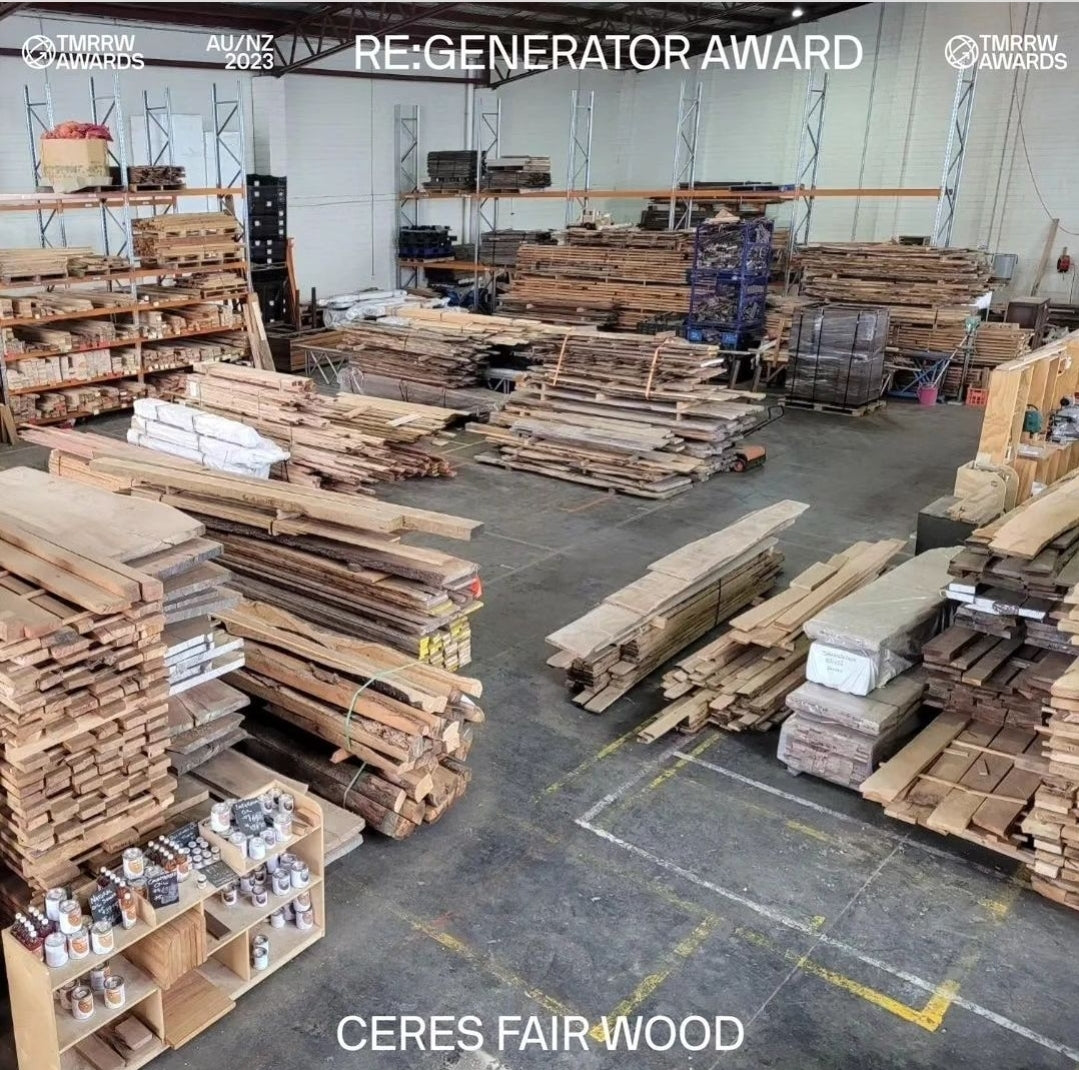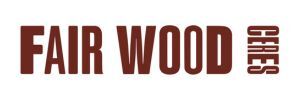
TMRRW Re:Generator Award: Hey mum, we won!
Reimagining urban forestry and placing value in waste wood
Logging and clearing of native forests contribute significantly to climate change, driven by the escalating demand for timber. Paradoxically, even with billions spent on importing timber products, thousands of large urban trees across Australia end up in landfills. In Greater Melbourne alone, around 500,000 trees are discarded, releasing CO2 into the atmosphere.
CERES Fair Wood saw an opportunity to reimagine urban trees not as waste but as a valuable timber resource, tackling climate change and fostering a circular economy.
CERES Fair Wood introduced the Urban Forestry Service, challenging traditional forestry practices by bringing the sawmill into the city. Applying Highest and Best Use (HABU) principles, they divert "waste" urban trees from landfills and transform them into ethical timber products. By viewing urban trees as a resource, they aim to reduce carbon emissions from green waste, provide alternatives to timber from native forests, create circular economy jobs, and foster community connection to the urban forest.
Collaborating with research partners, they're defining the city's timber resource scope and exploring a canopy-positive circular economy approach. The project has secured joint ventures, funding from WWF and Sustainable Table, a permanent mill site lease, and infrastructure funding. Their efforts have already diverted substantial carbon emissions and added economic value to finished timber products.
The organisation is committed to changing how society interacts with its timber supply utilising ongoing research, infrastructure development, and strategic partnerships. By challenging the status quo, they're not just building markets for sustainable timber but reshaping the narrative around urban trees, creating a model for other communities to replicate.


